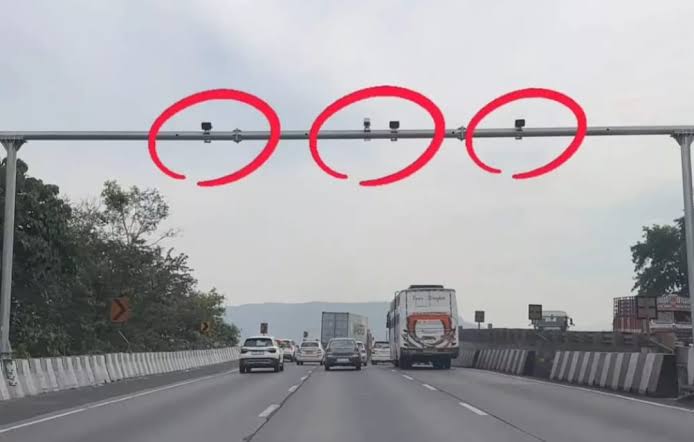Mumbai-Pune Expressway Issues ₹470 Crore in E-Challans for Over Speeding & Traffic Violations in One Year

Mumbai-Pune Expressway Issues ₹470 Crore in E-Challans for Over Speeding & Traffic Violations in One Year
Pune: The Intelligent Traffic Management System (ITMS) on the Mumbai-Pune Expressway has generated 27.76 lakh e-challans worth ₹470 crore for various traffic violations since its implementation in July 2024. However, only ₹51 crore of the fines have been recovered so far.
According to data from the Maharashtra Transport Department, cars are the biggest offenders, accounting for over 17.20 lakh e-challans related to speed limit violations on the 95-kilometer expressway. Heavy goods vehicles follow with 3.27 lakh challans, buses and other heavy passenger vehicles at 2.48 lakh, taxis with 2 lakh, and light goods carriers at 1.2 lakh.
Other categories include medium goods vehicles (85,468 challans), articulated heavy goods vehicles (30,450), and medium passenger buses (14,764).
A senior official from the Maharashtra Motor Vehicles Department (MMVD) confirmed that between July 19, 2024, and July 17, 2025, the department issued 27.76 lakh e-challans amounting to ₹470 crore in fines. Out of these, ₹51.32 crore has been collected so far.
An RTI reply to transporter KV Shetty revealed that the ITMS operator, Proctech Solutions ITMS LLP, was paid ₹57.94 crore for processing 8.84 lakh e-challans issued between July and December 2024. The operator receives ₹654.90 per e-challan, including GST.
The ITMS uses high-resolution cameras and AI-based detection tools aimed at improving compliance and reducing accidents on the busy expressway. Maharashtra State Road Transport Corporation (MSRTC) has installed 40 gantries, hundreds of CCTV cameras, speed detection cameras, ANPR, weigh-in-motion sensors, weather sensors, and a command and control centre (CCC) as part of the system. The project, costing over ₹100 crore, received ₹45 crore from the Road Safety Fund as viability gap funding.
Traffic violation reports generated by ITMS are verified at the CCC before challans are approved by RTO officials. E-challans have been issued for 17 types of violations, mainly for speeding, not wearing seatbelts, lane cutting, wrong-side driving, and using mobile phones while driving.
The Khandala ghat section, a 10-km stretch between Lonavala and Khalapur, has been a hotspot for overspeeding challans. Currently, the speed limit there is 60 kmph for cars and 40 kmph for heavy vehicles, compared to 100 kmph and 80 kmph on other stretches. Transporters argue that the low limit on the sharp downhill section leads to frequent challans, traffic slowdowns, and accidents. They are pushing for an increase in the speed limit for heavy vehicles to 45-50 kmph on this section.
Following protests from transport operators, including a strike last month, the state government formed a panel to address their concerns over the large number of e-challans issued to heavy vehicles.












